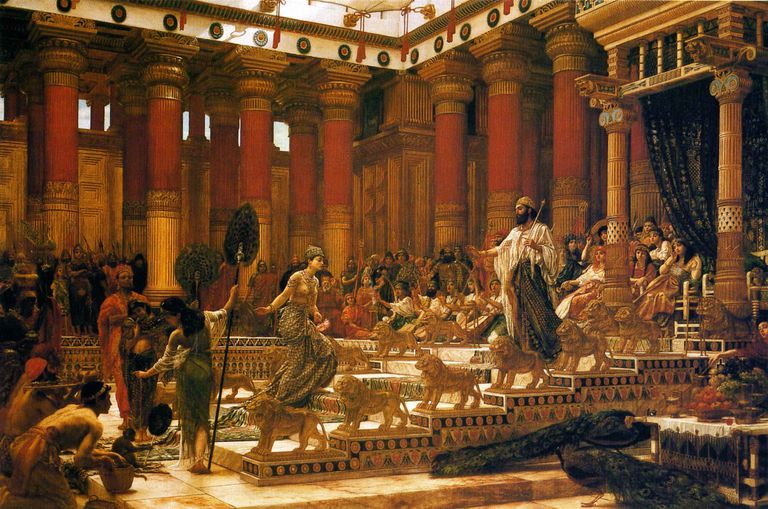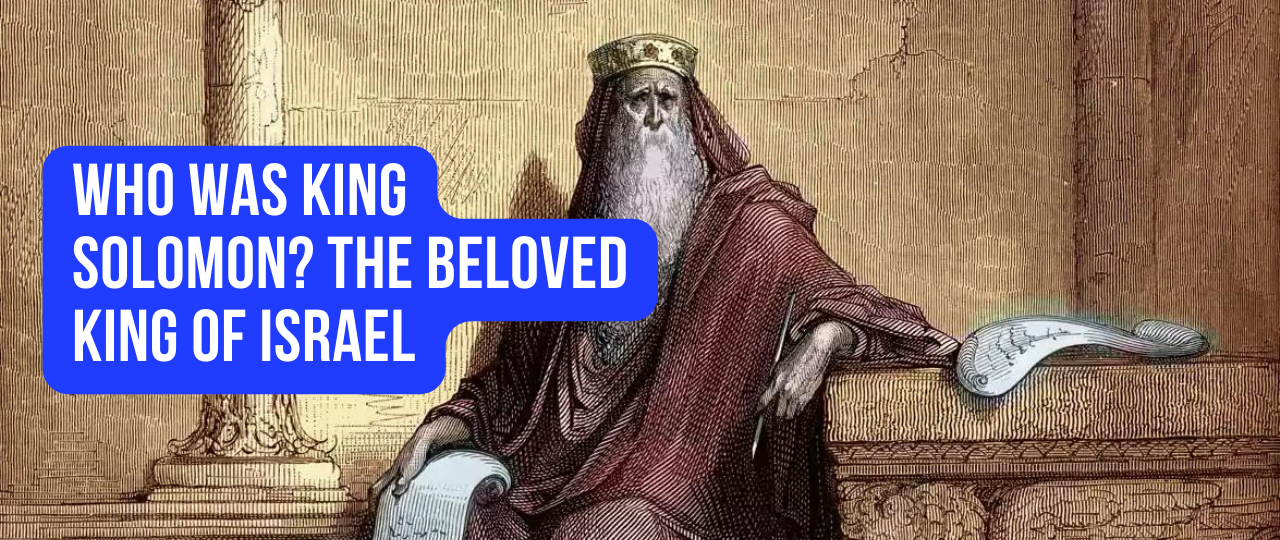
King Solomon- (also called Jedidiah; Shlomo; שְׁלֹמֹה) is an important person in history. Before I go into his history, I want to point out, since the 1700s, I had 4 family members named Solomon. They were not Jewish, in fact, they were Tuscarora (North Carolina Tribe), in order to keep the land that this Tribe had lived on for centuries, like many Tribes, they converted to Christianity. You had two choices- convert and become a Christian or leave the land. My family chose to take on a Christian name. That is American history. Also noting, my 4th great grandpa, Solomon, was considered a Womanizer, when he moved from North Carolina to Kentucky in 1820. That is a story for another time.
King Solomon of Israel was the second son of King David and Bathsheba. He is beloved in Judaism and Christianity for his wisdom and is viewed by Islam as a prophet. After taking the throne around the age of 12, Solomon first led the nation to a time of prosperity and peace as a superpower status and then to its downfall during his 40-year reign. Although there are some discrepancies about when he lived and reigned, the commonly accepted date of reign is 971 to 931 B.C.E.
Most information about King Solomon is derived from the first 11 chapters of Kings I and first nine chapters of Chronicles II. Solomon was a prolific writer, who composed 3,000 proverbs and 1,005 songs. He wrote the Song of Songs, called Shir ha'Shirim in Hebrew, as well as the Book of Proverbs (Mishlei) and Ecclesiastes (Kohelet).
SOLOMON'S WISDOM
Solomon's wisdom is believed to be divinely granted, making him the wisest man to ever live, and the following story illustrates this wisdom as a judge.
Two women came to his court, each claiming that she was the mother of the same baby. Solomon threatened to split the baby in half. One woman was prepared to accept the decision, but the other begged the King to give the live baby to the other woman. Solomon then knew the second woman was the mother.
Another favorite explanation of the power of Solomon's wisdom comes from I Kings 10:1-10, in which the Queen of Sheba visits Solomon to see for herself whether he's really as wise as his reputation says.
As the Tanakh says, she plied King Solomon with riddles and questions, and after she'd seen all that he had built and heard all of his answers, she said,
"It was a true report that I heard in my country of your deeds and of your wisdom. However, I did not believe the words until I came and saw with my own eyes, and I have beheld that not even a half had been told to me. You have wisdom and goodness in excess of that which I have heard. Fortunate are your men; fortunate are these your servants who always stand before you and listen to your profound wisdom. Blessed be the Lord Your God, who preferred to place you on the throne of Israel; because of the Lord's love for Israel forever, He appointed you as king to do justice and righteousness" (1 Kings 10:6-9).
WEALTH AND DOWNFALL
He amassed great wealth and had a passion for magnificence. Solomon's reign was marked by foreign alliances (notably with Egypt and Phoenicia) and the greatest extension of Israel's territory in biblical times. Solomon built numerous cities, constructed copper smelting furnaces in the Negev, and built the first Holy Temple in Jerusalem. The Temple took seven years to complete, and it was built of stone and cedar, carved within and overlaid with pure gold.
Toward the end of his reign, the expense of Solomon's building projects and his despotism led to the alienation of Israel's northern tribes and revolt. After Solomon died and was buried in the City of David, his son, Rehoboam succeeded him as king. Under Rehobaum’s rule, Solomon’s empire was lost and his kingdom was divided into two parts, with the nation of Israel to the north and the nation of Judah (and the descendants of Solomon) to the south.

BONUS FACT
It is said that when Achashverosh declared himself the king of Persia, he chose to sit upon the throne of King Solomon. This throne is referenced in I Kings 10:18-20:
Moreover the king made a great throne of ivory, and overlaid it with the finest gold. There were six steps to the throne, and the top of the throne was round behind; and there were arms on either side by the place of the seat, and two lions standing beside the arms. And twelve lions stood there on the one side and on the other upon the six steps; there was not the like made in any kingdom.
However, the legend goes, the throne rejected Achashverosh and he never attempted to mount the chair again.




















